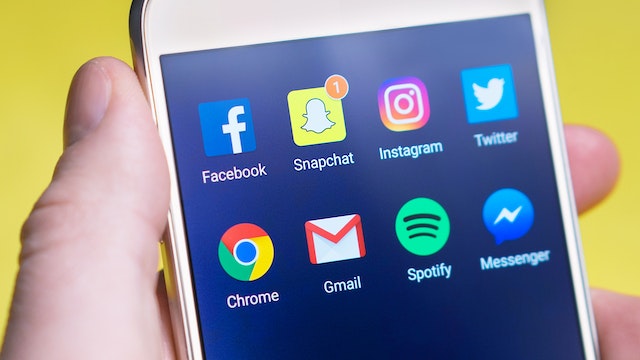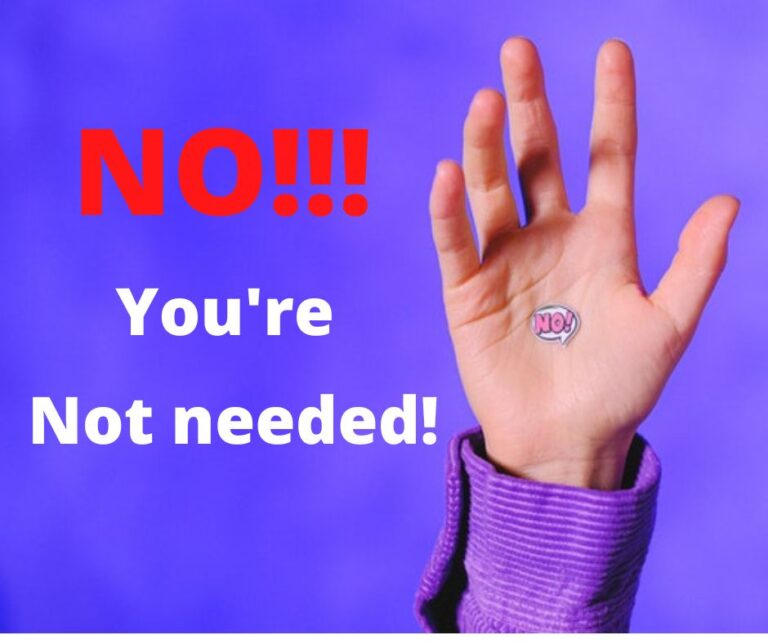11 Pros and Cons of Social Media on Mental Health
What are the pros and cons of social mental on mental health? That’s one of the questions many research and studies that revolve around social media use and mental health among young adults try to answer.
According to a survey published on Statista, there were over 4.26 billion global users of social media in 2021. And interestingly, this figure continues to skyrocket daily, though projected to hit six billion by 2027.
True, social media is an indispensable tool to many as it serves different purposes. But essentially, the primary purpose for its creation is to build and sustain relationships by allowing communication amongst people around the globe. And for that reason, you can be in Europe and communicate with your family members who visited Africa for an expedition or entirely new strangers.
And to our amazement, this geographical gap continues to get closed by new technology or features across these different social platforms such as Facebook, Twitter, WhatsApp, Instagram, YouTube, and TipTok, amongst others. However, beyond this, the reality before our eyes tells you and me that social media has come to stay and be part of our everyday life.
But this post will help you get the best from your use of social media by explaining the pros and cons of social media on mental health. Also, you’ll learn how social media affects you positively and negatively.
Pros of social media on mental health
It’s no news that social media has helped simplify how individuals disseminate a piece of information beyond where they are physical. And, of course, it has profoundly impacted how businesses reach out to their audience and how they engage with them– to ensure long-lasting relationships.
But below are the advantages of social media to you and, of course, how they affect teenagers’ mental health:
1. Promote awareness
Every second and minute that ticks, there is always something to share or communicate to others. On a personal level, it could be that your daughter, son, or sibling is getting married in three days. It could be a news story that just broke out in your neighborhood. Or as the case may be.
But the truth is that there’s something to share or hear. And it could just be a simple thought rambling in your head that you decide to share, or better still, an advertisement of a startup in your locality that just popped up on your news feed.
So note, more than ever, people across the globe have unlimited access to information concerning virtually any topic you can think of at the snap of their fingers.
2. Combat loneliness and isolation
5 out of 10 social media users log into their social media accounts to get themselves lit up while they subtly dismiss boredom.
That’s true because, according to a global survey, 33% of 23,004 respondents confirmed that adults worldwide experience loneliness. So this category of people dispels their boredom or isolation by engaging with people on these different platforms. That’s with the aid of social media such as Facebook, Instagram, etc.
They could decide to read something interesting on their news feed on Facebook or get involved in a trending entertainment story making a round on Twitter or Instagram. Or maybe chat with a stranger or an old-time friend(s) they haven’t spoken to for a long time.
3. Create and maintain relationships
Are you friends with someone you’ve not seen physically before? Your response is a YES, I suppose. That’s because it’s one of the possibilities social media offers its users.
That’s to say social media platforms help people to satisfy their social and belonging needs according to Abraham Maslow’s hierarchy of human needs. And it has a way of making them feel good about themselves. I mean, humans are social beings.
And even more, social platforms like LinkedIn have helped professionals across different niches and industries network, and create and sustain profitable business relationships.
4. Foster self-expression and creativity
One of the advantages of social media is that it allows users to express themselves on any topic that interests them. It can be in the form of written posts or video content.
And while that helps boost their self-confidence, it helps the web to stay alive. That’s because the internet feeds on and lives by content. Ranging from blog posts, and articles to videos, amongst others.
5. Bridge physical gap
With the aid of social media, the mental stress of having to travel long distances to communicate a message to hundreds or thousands of people has been eliminated. Also, that reduces communication costs as is inherent in some countries.
In other words, people are brought together with just a few clicks on their smartphones or laptops. Therefore it gives users the luxury of comfort, convenience, and ease. And all these have a way of affecting their mental health positively.
Cons of social media on mental health
There are indeed two sides to a coin. The same applies to the usage of social media. Thus, some of the disadvantages of social media and its negative impact on young adults and other users include:
-
Increase loneliness
Loneliness and depression have a close affinity. They are like brothers and sisters. Unfortunately, while many use social media in the first instance to alleviate or kill the loneliness on their inside, they become alone trying to do that. The reason is that the more you use social media, the more you feel disconnected from your physical environment and those around you.
And that alone is enough reason to make you feel lonely. Social media may appear to destroy the grip of loneliness on a person. But in the long run, it makes the individual alone more than he had been from the onset. Especially, if one doesn’t address the underlying causes of loneliness.
2. Encourage anti-social behavior
While the use of social media appears fun, there are side effects that may arise if not checked and managed appropriately. Yes, many active social users tend to be absorbed in themselves and may develop apathy for physical interactions.
Also, while their use of social media may puncture their social skills, they may gradually develop anti-social behaviors. And these unhealthy behaviors include comparing their lives with others in their network based on what they see on these various platforms.
3. Smartphone addiction
In March 2019, a survey was carried out in the USA on 1,150 respondents (18 years and above). And the finding showed that 15 percent of the respondents strongly agreed they wasted too much time using their smartphones.
That is one of the negative impacts of the excessive use of social media by young adults globally. And this begins to affect their daily life. Consequently, it makes some of them start searching for practical ways by which they can get rid of this addiction.
4. Punctures focus ability
Anything one does out of proportion calls for alarm. That’s also true for abnormal use of social media by people, including young and old. It adversely affects their ability to focus on a single task at times.
Walk into a lecture hall; chances are that you’ll find students sneaking in and out of their social media accounts such as Facebook, Instagram, WhatsApp, TikTok, or as the case may be.
And that, in the long run, affects their performance in their school work. The same goes for employees in their place of work. It makes them lazy and less productive than they should be. [Read how to deal with lazy employees]
5. Reduce productivity
Decreased productivity sounds much of a by-product of the preceding point: Punctures focus ability. Honestly, the impacts of social media usage on people’s mental health are connected. So when you’re not focused, hardly would your productivity level be at its peak.
6. Masked underlying problems
Socializing on social media can be fun, but at the same time, it can mask underlying mental issues such as depression and anxiety. If you conduct a careful survey, you may be amazed to realize that many people who shout a lot on these platforms are battling deep-rooted mental issues.
On the outside, they look lively, engaging, and active on these social media platforms. But this is not usually the case for physical interactions, whereby you can observe a person beyond his words. I’m talking about nonverbal communication cues.
Bonus: Disturbed Sleep
Habit forms gradually. But gains momentum once it hits a particular point. At that stage, you begin to wonder how it started. One of the adverse effects of social media on people that don’t use it moderately is that it begins to find their sleep.
That’s because they get so glued to their phones; and may stay up late at night busy with it.
FAG on Pros and cons of social media on mental health
How does social media affect mental health positively?
There are different ways that social media can be advantageous to you. One is that it keeps you abreast of salient information about happenings around you (and beyond you). It creatively gets you engaged so that you feel less boredom sooner than you expect. Especially if you’re gaining some education, entertainment, or quality information.
How does social media affect mental health negatively?
Social media can affect your mental health negatively in ways you may not have considered. It may stimulate anti-social behavior, leads to smartphone addiction, and adversely impact your ability to concentrate on the task at hand that you’re supposed to do.
In addition, it drastically causes a decline in productivity in your personal or career life. It can also militate against your quality of sleep.
How social media affects teenage mental health
A chunk of social media users are teenagers in high schools or colleges. And when used excessively, it can affect their study habits and school performance.
Final Thought on Pros and cons of social media on mental health
Now that you’ve learned the pros and cons of social media on mental health, you have to make a choice. You either make it affect you positively or negatively. You should seize the different social media platforms and get the goldmine they have to give you.
But in doing that, you must not take moderation out of your approach. In other words, try not to go overboard in a way that will backfire on you.
Drop your thoughts using the comment. And share if you find it helpful to you.








